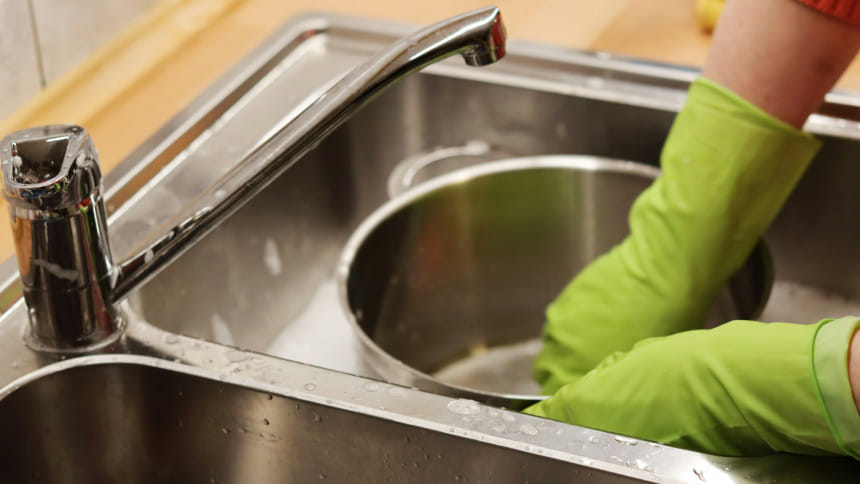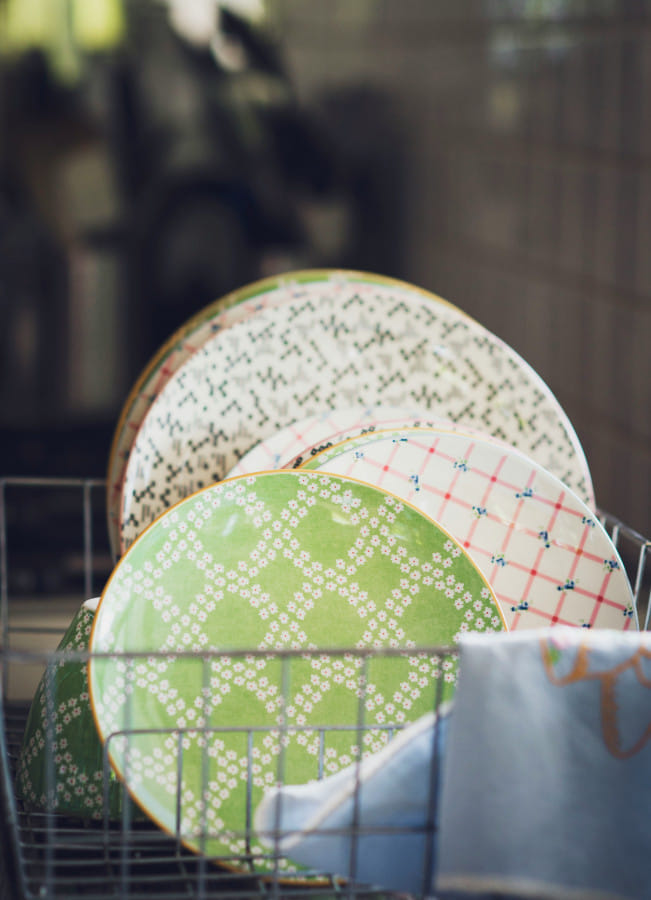Pro tips for better dishwashing during Ramadan

Ramadan heralds a time of self-restraint and discipline. Amidst these spiritual practices, our culture of special culinary preparations for this month holds significance, adding flavour to the fasting experience. After a day of fasting, fatigue often sets in, and the task of washing dishes can feel burdensome, particularly following a satisfying iftar. The dishwashing exercise can easily spiral out of control during iftar parties as you cater for a large number of guests.
By adhering to some straightforward guidelines, the burden of this chore can be alleviated. Here, we present a selection of tips to streamline the dishwashing process and bring a little ease after a long, exhausting day.
The first step is to make sure that you have quality soap. These premium soaps are often fortified with potent degreasers and surfactants, enhancing their efficacy in cutting through tough grease and food residues.
For those engaged in frequent dishwashing, selecting soaps with gentler formulas is advisable, as they are more forgiving on the skin. Moreover, premium dish soaps also tend to generate luscious suds that endure for extended periods, facilitating prolonged washing sessions without the hassle of frequent soap replenishment.
Moving on to the next suggestion, it is essential to prioritise the use of gloves during dishwashing. Not only do gloves shield your hands from extreme water temperatures, but they also serve as a barrier against potential allergic reactions triggered by harsh ingredients present in some soaps.
Gloves also act as a barrier, minimising direct contact between your skin and food residues, ensuring hygiene while enhancing grip on slippery, soap-soaked dishes. Ultimately, wearing gloves contributes to a more comfortable and secure dishwashing experience overall.

Another valuable technique involves regulating the water temperature appropriately. Generally, hot water yields better results. The increased temperature accelerates the dissolution of dried-up food residues, facilitating more efficient cleaning. Furthermore, hot water evaporates more rapidly at room temperature, resulting in quicker drying times.
However, it's wise to adjust the water temperature based on the nature of the waste. For sticky foods like dairy or starch residue, colder water is preferable, as hot water may worsen stickiness, making stain removal a much more challenging task.
While it may be tempting to repurpose a mesh produce bag from the grocery store into a makeshift scrubber, investing in a proper scrubber or sponge will undoubtedly enhance your dishwashing routine.
Occasionally, pots and pans may accumulate stubborn caked-on grease, presenting a formidable challenge. A simple yet effective solution to this problem involves sprinkling a pinch of salt and allowing it to soak in a bowl of soapy water. This method helps to loosen the grease, making the subsequent cleaning process notably easier.
A final tip — prioritise washing the cleanest items, such as glass or coffee mugs, before moving on to dirtier items like plates and silverware, and finally, pots and pans. This strategic approach helps prevent transferring residue from heavily soiled items onto other ones, avoiding unnecessary re-cleaning.
Always remember to rinse your scrubber or sponge thoroughly after each use and allow them to dry completely, maintaining their effectiveness and hygiene for future dishwashing tasks!

 For all latest news, follow The Daily Star's Google News channel.
For all latest news, follow The Daily Star's Google News channel. 








Comments